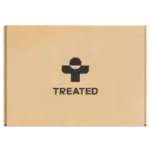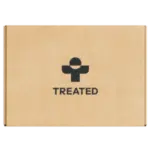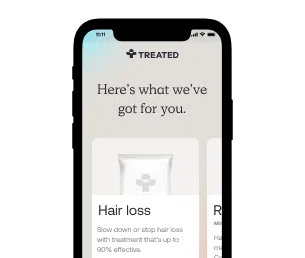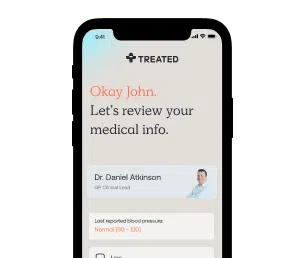Head lice
Effective home treatments to get rid of lice.
Secure delivery
UK clinicians
Head lice are tiny brown-grey insects that live, breed and feed on the human scalp, making it itchy and uncomfortable.
Let us help you choose a quick head lice treatment. Talk to our expert clinicians and they’ll recommend a treatment that’s best for you. Order head lice treatment with us and get the treatment you need, when you need it.
Head lice are small insects that like to live on the scalp. Head lice hatch out of tiny egg cases, known as nits, that are attached to the hair usually near to the root. Living adults are about 3mm long and quite difficult to spot, most people notice the eggs first.
They feed on human blood through the scalp. Their bites, saliva and faeces can make the scalp feel itchy and unpleasant. These small crawling insects can’t fly, jump or burrow into your scalp. They don’t cause any other health problems but they’re certainly a pest.
Head lice can affect anyone with long or short hair and they have no preference when it comes to cleanliness. They’re just happy spreading from one person to the next through close contact.
Head lice can affect anyone, however they are more common in school age children between the ages of four to 11 years and girls tend to get them more than boys. Families with school age children may be more susceptible to a head lice infestation.
Head lice spread easily with head-to-head contact. It’s less likely that they’ll transfer between people through the sharing of combs, hats or pillows.
Head lice infestations are very common. Most people will experience one at some point in their life. As we’ve mentioned, there are some groups of people who may be more likely to come into contact with head lice. Parents of school age children tend to dread receiving notification of a head lice infestation in their child’s class. But adults can catch them too.

How we source info.
When we present you with stats, data, opinion or a consensus, we’ll tell you where this came from. And we’ll only present data as clinically reliable if it’s come from a reputable source, such as a state or government-funded health body, a peer-reviewed medical journal, or a recognised analytics or data body. Read more in our editorial policy.
Head lice are passed on from one person to another by close contact. When you put your head close to the head of a person with lice, there’s a high chance you’ll get infested.
Lice don’t have a preference for dirty or clean hair and can affect anyone. The best way to avoid a lice infestation is to not put your head near the head of anyone who already has lice. Those with longer hair styles may wish to keep their hair tied back, so that there’s less chance of a loose hair strand inviting a little visitor onto your scalp.
Using a fine-toothed comb regularly can help you spot the first signs of lice infestation.
Head lice can be difficult to spot even with close inspection. The only way to be sure that you have head lice is to find a living one in your hair. This is usually done by combing your hair with a special fine-toothed comb.
Other signs that you may have lice include:
Head lice are pretty harmless, but they can live in the hair for a long time and can be irritating and frustrating to deal with.
Head lice don’t cause any other serious health problems but they can make you feel self conscious. You might catch yourself itching your head a lot or find an itchy rash appearing behind the neck and ears. This itchiness can even lead to disturbed sleep.
Also, it’s very unlikely you’ll get an infection from having lice, but you should try to avoid scratching the scalp.

How we source info.
When we present you with stats, data, opinion or a consensus, we’ll tell you where this came from. And we’ll only present data as clinically reliable if it’s come from a reputable source, such as a state or government-funded health body, a peer-reviewed medical journal, or a recognised analytics or data body. Read more in our editorial policy.
A range of treatments are available to get rid of head lice. Most treatments come in the form of a solution that needs to be applied to the hair.
If you’re an adult and are looking for a head lice treatment, chat with our online experts and they’ll help you choose a treatment that’s suitable for you.
Dimeticone is thought to be the most effective treatment for head lice, it’s estimated to work about 70% of the time . But if this isn’t the right treatment for you, we can give you options from the other range of treatments available.
Head lice treatments can be combined with wet combing to make sure they are effective in removing the eggs. Wet combing involves combing the entire hair with a narrow-toothed comb while the hair is still wet, some people apply an abundance of conditioner to help with the process.
It’s always best to get a treatment for head lice as they can spread from one person to another very easily. An infestation can also cause a lot of discomfort and distress. If left untreated the lice won’t go away on their own, they’ll just keep multiplying.

How we source info.
When we present you with stats, data, opinion or a consensus, we’ll tell you where this came from. And we’ll only present data as clinically reliable if it’s come from a reputable source, such as a state or government-funded health body, a peer-reviewed medical journal, or a recognised analytics or data body. Read more in our editorial policy.
Have something specific you want to know? Search our info below, or ask our experts a question if you can’t find what you’re looking for.
British Association of Dermatologists - Patient Information Leaflets (PILs).
4% dimethicone lotion: a subsidised treatment for head lice - Best Practice Advocacy Centre New Zealand.

Weekly head lice treatment that’s 98% effective. Easy to use liquid.

The quick and easy fix to get lice-free hair

Quick 10-minute treatment for head lice. Suitable for asthmatics, with a pleasant smell.

Registered with GMC (No. 4624794)
Meet Daniel
Registered with GPhC (No. 2202465)
Meet Sanjeda
Registered with GPhC (No. 2070724)
Meet Craig
Always read the leaflet that comes with your medication and tell us about any side effects you get.
We know health, but you know you.
Our experts tell you what’s safe, but you decide what’s best.
Answer a few questions and tell us about yourself. Get tailored advice from our clinicians so you can choose better.

Choose your treatment and how often you have it delivered.

We know things change. It’s the nature of life. We’ll check in regularly to make sure your treatment is still right for you.
Pause. Change. Skip. Start again. Any time you like.
Here are some other things we can help with.
Choose from our range of tablets and solutions. Get ongoing care and support from our experts.
Stop smoking treatments that can help you kick the habit forever, and reduce your risk of disease.
Tablets or injections. Tailored weight loss treatments combined with ongoing support from our experts.
We're making healthcare more about you. Sign up to our newsletter for personalised health articles that make a difference.
Disclaimer: The information provided on this page is not a substitute for professional medical advice, diagnosis, or treatment. If you have any questions or concerns about your health, please talk to a doctor.
We couldn't find what you're looking for.
Here's everything we treat. Or, if you're looking for something we don't have yet, you can suggest something.
If there’s a particular treatment or condition you’re looking for, tell us and we’ll look into it for you.
Submit your question here, or tell us if you’ve found an issue on our site.
We’ll get back to you very soon. We aim to respond to all queries in one working day.
You’re signed up to our newsletter. Keep an eye on your inbox for our latest update.
By clicking 'Subscribe now' you're agreeing to our Privacy Policy.
We’ve sent you an email asking you to confirm your email address.